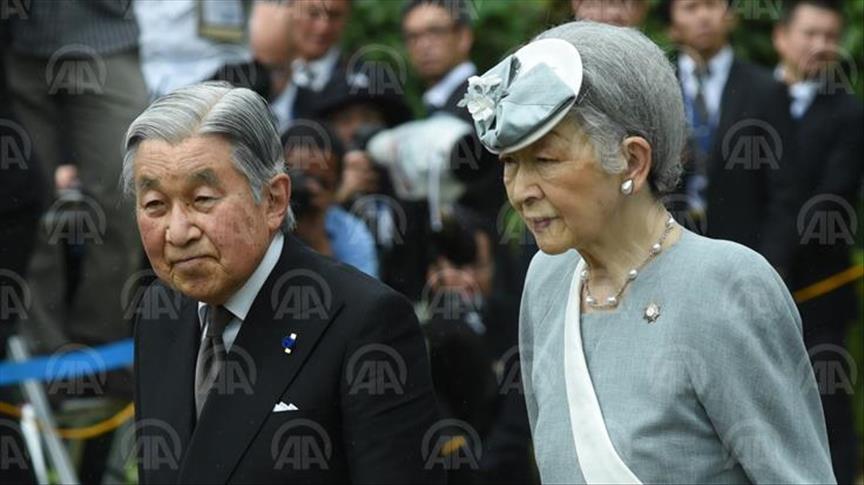Akihito proves to be Japan’s real messenger of peace
While politicians’ expressions of regret or remorse often ring hallow, Japan's emperor has consistently laid stress on Japan's World War II legacy

Tokyo
By Todd Crowell
TOKYO
For many in Asia, Emperor Akihito proved on his recent visit to the Philippines that he is the country's real messenger of peace.
While politicians’ expressions of regret or remorse often ring hallow, at least to the ears of Asian neighbors that were occupied by Japan's Imperial Army, Akihito consistently laid stress on the World War II legacy.
During his five-day state visit to the Philippines -- which ended Friday -- Akihito urged the younger generation “to keep alive the memories of [the war]” and the hardships that followed -- not just in the Philippines but all Asian countries, including Japan.
The Philippines was the site for some of the worst atrocities of WWII, starting with the Bataan “Death March” at the beginning of the occupation to the Battle of Manila near its end, where an estimated 100,000 civilians died.
Nevertheless, Filipinos do not seem to pick at these scars as much as the Chinese and the Koreans. Indeed, bilateral relations between Tokyo and Manila are unusually cordial. Philippine President Benigno Aquino III paid a formal visit to Japan last year.
The Philippines is eager to earn Japan’s support in territorial disputes in the South China Sea -- the “West Philippine Sea” to Manila. President Benigno Aquino even congratulated Prime Minister Shinzo Abe over passage of Japan's controversial security laws last summer.
Emperor Akihito, now 82, was an impressionable 11-year-old boy when the war ended.
He had been sent to the countryside to protect him from American bombing, but nothing protected him from his first sight of the utter devastation of Tokyo.
Under Japan’s constitution, written by American occupiers, Akihito has almost no role to play in Japanese politics. He isn’t even head of state, only a “symbol” of the unity of the nation.
He never comments publicly on Japanese policy, yet in many subtle ways he makes his generally pacifist views known.
Last summer, when the world was focused on what Prime Minister Shinzo Abe would say on the 70th anniversary of the WWII surrender, the Imperial Household Agency released a reconditioned copy of his father Hirohito’s famous “endure the unendurable” surrender speech.
In some ways he is a more effective opposition leader than the hapless official opposition, headed by the Democratic Party of Japan. He is an antidote to Abe’s “stop dwelling on history and let Japan be a normal nation again” mantra.
For many Japanese conservatives -- people who revere the monarchy as an institution -- it must be a source of great disappointment that the actual emperor is a liberal (as is his future successor, the crown prince, Naruhito).
Many conservatives, including the PM himself, venerate the Yasukuni shine in downtown Tokyo dedicated to Japan’s war dead. Yet Akihito has never visited the shrine and his father stopped going in 1972 after it became known that the priests had secretly enshrined 14 “Class A” war criminals.
Instead, Akihito attends a memorial service at the Nippon Budokan -- a large indoor arena. But it is not a permanent memorial to Japan’s war dead or anything else. Upcoming events include rock concerts or a sumo tournament.
He has visited other memorials both in Japan and abroad. During his recent visit to the Philippines, he laid a wreath at the Heroes Cemetery dedicated to Filipinos who fought and died during the war.
During his visits he prays for “all those” who lost their lives, including Americans. In his visit to the Palau last year, site of a famous South Pacific Battle, he laid a wreath of flowers on the memorial to 1,700 Americans killed in the battle as well as the one dedicated to the 5,000 fallen Japanese soldiers.
While other Japanese leaders seem to choke on expressing any sincere regrets for Japan’s aggression during and before WWII, words and phrases such as “deep sorrow,” or “deep remorse” seem to come easily from the emperor’s mouth.
The only discordant note about Akihito’s visit was a demonstration for women recruited for army brothels during the war, known as the “comfort women.” It is a complaint similar to virtually all of Asian nations occupied by Japan.
Only 103 Filipina comfort women are still alive.
When Akihito became emperor on the death of his father in 1989, he chose the word “Heisei”, meaning achieving peace, as his rein name (which appears on all official documents – this year is Heisei 28.)
But then his father, Hirohito, now known as the Showa Emperor, picked Showa as his rein name -- meaning “enlightened peace,” which today appears ironic considering the epic destruction wrought in his name
Anadolu Agency website contains only a portion of the news stories offered to subscribers in the AA News Broadcasting System (HAS), and in summarized form. Please contact us for subscription options.







